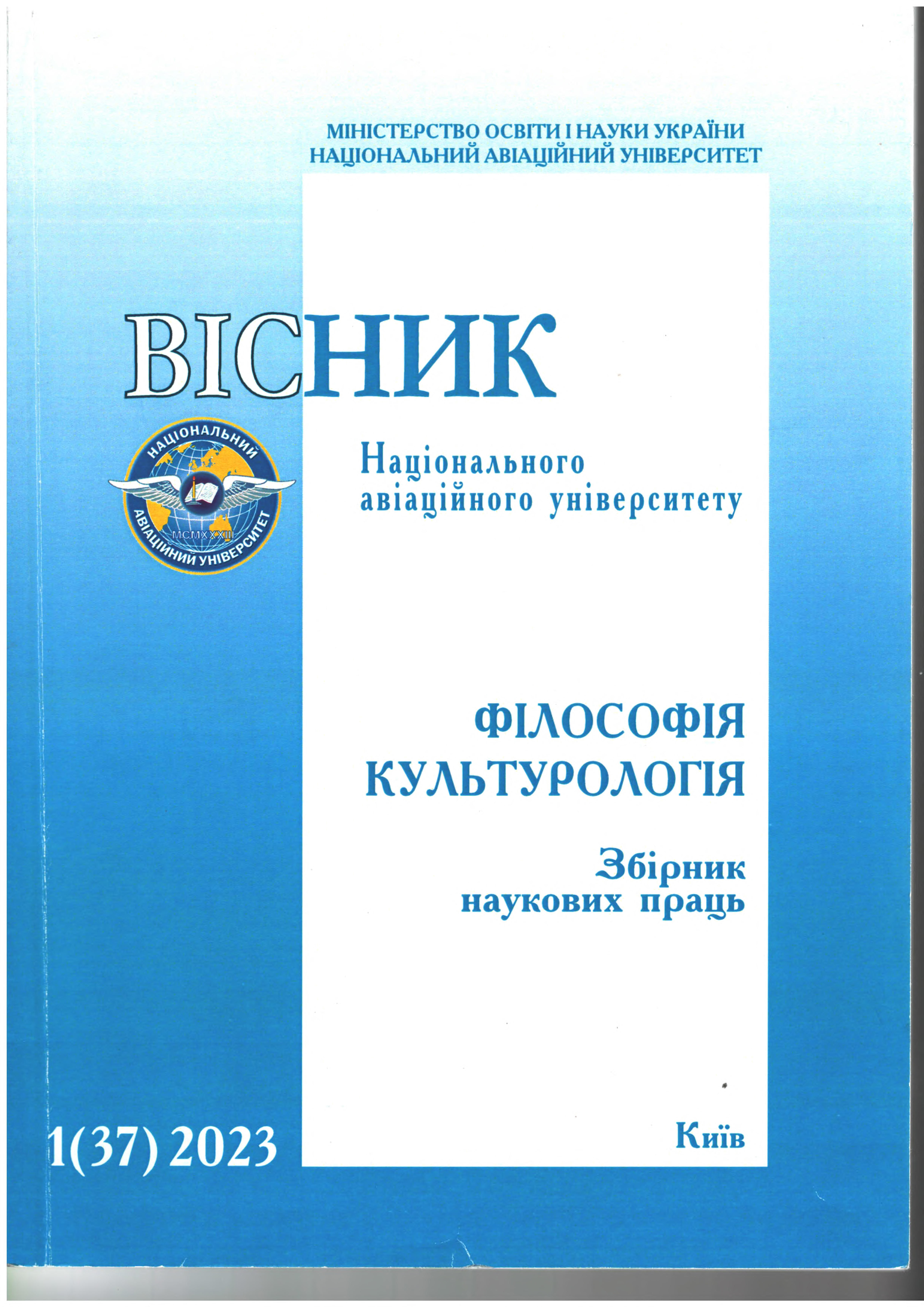SOCIAL AND PHILOSOPHICAL ASPECTS OF ADMINISTRATIVE MANAGEMENT RELATIONS IN THE CONTEXT OF MODERN SOCIAL CHALLENGES
DOI:
https://doi.org/10.18372/2412-2157.37.17579Keywords:
соціальна інформація, соціальна комунікація, соціальне управління, суб’єкт та об’єкт управління, типи соціального управління, духовні чинники соціального управління, гуманізація управління, соціальний розвитокAbstract
administrative management of social activity. The aim and tasks are to consider the philosophical aspects of administrative
management relations in the context of modern social challenges to implement the main provisions of the concept of sustainable
development in practice. Research methods consist primarily of the theoretical foundations of the dialectical approach in interpreting
the interaction of the subject and the object of social administration, the principles of the systemic approach. Also, the author relied on
philosophical and sociological studies of social deviations, the states of social consciousness. Research results. The humanization of
the management subsystem with the development of elements of social self-organization can be considered as one of the ways to
successfully overcome modern challenges, the formation of positive feedback between individuals, teams and society as a whole, and
should also be a mandatory component of all existing and future social projects. It is the principles of humanism, positive systemic social
relations, the effective use of socially significant information and communication, the democratic nature of the distribution of social
influences and opportunities for self-organization that will serve as the meaningful content of social transformation, which is the path to
the survival of humanity. Discussion. The entire set of administrative management interactions is understood as subject-object
interaction with a complex, multi-level structure. The administrative management process is carried out in relation to human collectives,
extends to natural processes (ecological management), as well as technology, the placement of productive forces. Conclusions. In the
conditions of modern societal challenges, which have a systemic nature, the humanization of the administrative management
subsystem with the development of elements of social self-organization can be considered as one of the ways to successfully overcome
modern challenges, to arrange positive feedback between individuals, collectives and society as a whole, and to be mandatory an
essential component of all current and future social projects. From a philosophical point of view, the ideal of the historical development
of social administrative management can serve as a method of collective social self-management, in which the subject and the object of
management form an organic functional unity. Humanization of social relations, humanism of social administrative management is the
main principle of building a future dialogic environment in interstate and intercultural relations.
References
Бех В. П., Бех Ю. В., Попов С. М. Соціальне управління у
контексті саморегуляції соціального організму країни:
монографія. Запоріжжя : Просвіта, 2012. 571 с.
Бродель Фернан. Матеріальна цивілізація, економіка і
капіталізм, XV-XVIII ст. Том 1. Структура повсякденності:
можливе і неможливе. Київ : Основи, 1995. 543 с.
Вебер Макс. Соціологія. Загальноісторичні аналізи.
Політика. Київ : Основи, 1998. 534 с.
Гаєвська О. Б. Управління як соціальний феномен. Київ :
КНЕУ, 2000. 168 с.
Головаха Є. І., Паніна Н. В. Патологія посттоталітарного
суспільства: від психіатричного самодіагнозу до аналізу
специфічних соціопатій. Філософська і соціологічна думка.
№ 5. С. 19–39.
Дротянко Л. Г. Трансформація людської природи в
контексті системи «людина-природа. Вісник Національного
авіаційного університету. 2022. № 1 (35). С. 5-10. (Серія
«Філософія. Культурологія»).
Дюркгайм Е. Первісні форми релігійного життя: Тотемна
система в Австралії. Київ : Юніверс, 2002. 424 с.
Леві-Строс Клод. Первісне мислення. Київ : Український
Центр духовної культури, 2000. 324 с.
Першіц А. І., Монгайт О. Л., Алєксєєв В. П. Історія
первісного суспільства : підручник для студентів історичних
факультетів вищих навчальних закладів. Київ : Вища школа,
224 с.
Скиба О. П. Релігійні комунікації і екологічна
відповідальність сучасної людини. Вісник Національного
авіаційного університету. 2022. № 1 (35). С. 110-115. (Серія
«Філософія. Культурологія»).
Халик Т. «Витіснений» Бог. Про духовну ситуацію в
посткомуністичному суспільстві. Людина і світ. 1999. № 11-12.
С. 3–8.
Ченбай Н. А. Соціальна відповідальність в умовах
глобальної екологічної кризи. Вісник Національного
авіаційного університету. 2022. № 1 (35). С. 120-124. (Серія
«Філософія. Культурологія»).
Шатохін А. М., Вуйченко М. А. Філософські проблеми
управління суспільством. Актуальні проблеми філософії та
соціології: Науково-практичний журнал. Вип. 21. Одеса, 2018.
С. 121-124.
Щокін Г. В. Закони соціального розвитку і управління.
Міжрегіональна академія управління персоналом. Київ :
МАУП, 2006. 192 с.

